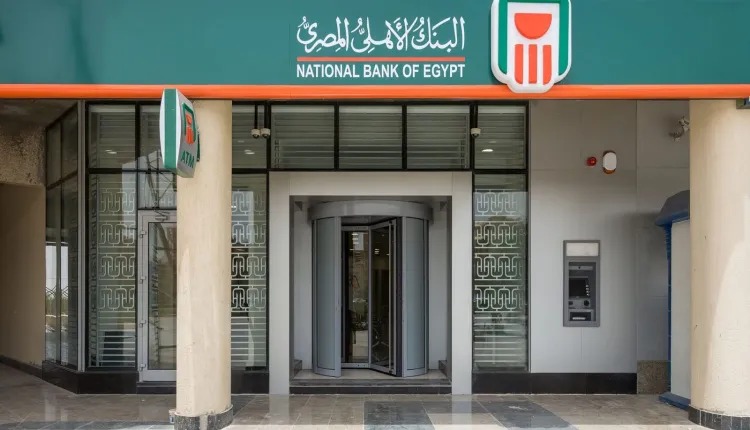
Fitch Ratings has downgraded National Bank of Egypt’s (S.A.E.) (NBE) Long-Term Issuer Default Rating (IDR) to ‘B-‘ from ‘B’. The Outlook is Stable. Fitch has also downgraded the bank’s Viability Rating (VR) to ‘b-‘ from ‘b’ and Government Support Rating (GSR) to ‘no support’ from ‘b-‘.
The rating actions follow the downgrade of Egypt’s sovereign rating on 3 November 2023 to ‘B-‘ from ‘B’ (see Fitch Downgrades Egypt to ‘B-‘; Outlook Stable at www.fitchratings.com). They reflect the high correlation between the sovereign’s and NBE’s credit profiles, given the bank’s sizeable holdings of Egyptian government debt (42% of total assets at end-2022) and significant lending to public-sector companies. The Stable Outlook on NBE’s ratings reflects that on the Egyptian sovereign rating, which caps the bank’s ratings at their current levels.
Fitch downgraded the operating environment score for Egyptian banks to ‘b-‘/stable from ‘b’/negative in line with the sovereign rating action, as operating conditions for banks are correlated with the sovereign profile. It considers banks’ significant exposure to the sovereign, tight external liquidity, high core inflation (40% in September 2023) and much weaker business conditions in the non-oil sector. Fitch sees real GDP growth slowing to 3.5% in the financial year ending June 2024 (FY24) and 4.5% in FY25 compared with 3.8% in FY22, with inflation averaging 33% in FY24 and we view a further currency adjustment as highly likely.
KEY RATING DRIVERS
NBE’s IDR is driven by the standalone strength of the bank, as expressed by its ‘b-‘ VR. . The VR reflects the strong linkage between NBE’s credit profile and that of the Egyptian sovereign. The VR also considers the bank’s reasonable loan quality ratios (although asset quality remains closely correlated with the sovereign’s credit profile), good profitability through the cycle and stable funding base, underpinned by NBE’s dominant franchise and strong links with the Egyptian sovereign. However, it also reflects pressures on foreign-currency (FC) liquidity and the bank’s weak core capitalisation.
Weaker Operating Conditions: Economic conditions for Egyptian banks will remain weak, given high inflation, rising input costs, geopolitical uncertainties and lingering pressures on the currency. The banking sector recorded a high net foreign liability position of USD16.4 billion at end-3Q23, reflecting tight FC liquidity.
Dominant Domestic Franchise: NBE is Egypt’s largest bank, with more than 38% of system assets and deposits at end-2022. The bank has a large domestic franchise, with more than 600 branches and 17 million customers at end-2022.
High Concentration to Sovereign: NBE exhibits very high concentration on sovereign risk. Egyptian government securities, mainly in local currency, represented 42% of total assets at end-2022. Around 80% of the bank’s corporate loan book was to public-sector entities, bringing its total exposure to the sovereign to a high 73% of total assets or around 13x equity at end-9M22.
Healthy Asset-Quality Metrics: Loans comprised 38% of total assets at end-2022. NBE’s Stage 3 loans ratio was broadly stable at end-2022 at 1% but the stock of stage 3 loans in absolute terms grew by 35%, driven by currency depreciation and weaker economic conditions. Stage 2 loans were 4.7% of gross loans at end-2022. Total reserves coverage of Stage 3 loans is strong.
Volatile Profitability: NBE’s operating profit to risk-weighted assets (RWAs) ratio improved slightly to 4% in 2022 (2021: 3.9%), as total RWAs soared by 55% in 2022, partly driven by currency depreciation. The bank’s performance benefits from Egyptian pound depreciation due to its long net FC position. We expect NBE’s profitability metrics to improve in 2023 and in 2024 as high-yielding certificate of deposits (CDs), which weigh on funding costs, mature and assets grow in a rising rate environment.
Weak Core Capitalisation: We have revised the outlook on NBE’s capitalisation and leverage score to negative from stable, reflecting the bank’s low common equity Tier 1 (CET1) ratio (7.4% at end-2022) and equity-to-assets ratio (5.1%) amid growing sovereign risks. We expect the bank’s CET1 ratio to improve by end-2024 on the back of slower growth in RWAs and better internal capital generation, but it will remain below large private-sector peers.
Tight FC Liquidity: NBE has a good funding profile, supported by its dominant franchise, particularly in the retail segment (73% of total deposits at end-2022). However, the bank has increased its reliance on expensive albeit stable retail CDs, which rose to 65% of total customer deposits at end-2022 from 55% at end-1H19.
NBE’s FC liquidity came under pressure in 2022, when the Central Bank of Egypt withdrew around EGP135 billion of FC deposits in 2022. These withdrawals were met using FC interbank placements and through higher recourse to borrowings, which significantly widened the bank’s net foreign liability position. We believe the banking sector’s net foreign liability position of USD16.4 billion is mainly driven by NBE.
RATING SENSITIVITIES
Factors that Could, Individually or Collectively, Lead to Negative Rating Action/Downgrade
A downgrade of Egypt’s sovereign rating would lead to a downgrade of NBE’s ratings given the bank’s very high sovereign exposure.
A sharp deterioration in operating conditions resulting in increased pressure on the bank’s asset quality and subsequently profitability, and could lead to downgrades. The ratings could also be downgraded if there was a sharp deterioration in the bank’s CET1 ratio or if intensifying FC liquidity pressures affect the bank’s ability to service its FC obligations.
Factors that Could, Individually or Collectively, Lead to Positive Rating Action/Upgrade
An upgrade of the bank’s ratings would require an upgrade of Egypt’s sovereign rating.
NBE’s GSR of ‘no support’ reflects the sovereign’s weak ability to provide support to the bank in FC given weak and vulnerable external positions. This considers the sovereign’s large gross external financing requirements which are expected to reach 91% of FC reserves in FY24 and the banking sector’s large net foreign liability position representing almost 50% of FC reserves.
An upgrade of the GSR would require an upgrade of the sovereign rating and an improvement of the sovereign’s ability to support domestic banks.
VR ADJUSTMENTS
The business profile score of ‘b-‘ is below the ‘bb’ category implied score due to the following adjustment reason: business model (negative).
REFERENCES FOR SUBSTANTIALLY MATERIAL SOURCE CITED AS KEY DRIVER OF RATING
The principal sources of information used in the analysis are described in the Applicable Criteria.
ESG CONSIDERATIONS
NBE has an ESG Relevance Score of ‘4’ for Governance Structure, reflecting the Egyptian government’s influence on its strategy and business activities, in Fitch’s view, as evident in the issuance of expensive CDs in 2016, 2020, 2022 and 1Q23. This has a negative impact on its credit profile by affecting the bank’s cost of funding and net interest margins and is relevant to the rating in conjunction with other factors.
The highest level of ESG credit relevance is a score of ‘3’, unless otherwise disclosed in this section. A score of ‘3’ means ESG issues are credit-neutral or have only a minimal credit impact on the entity, either due to their nature or the way in which they are being managed by the entity. Fitch’s ESG Relevance Scores are not inputs in the rating process; they are an observation on the relevance and materiality of ESG factors in the rating decision.











